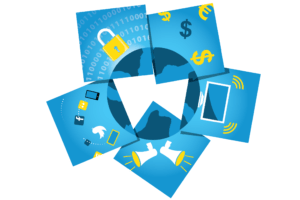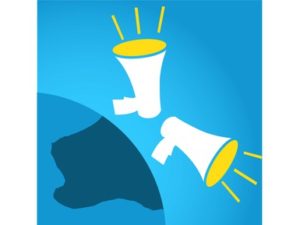Clear goals, objectives and targets will help ensure that measurable progress in your strategic plan.
Goals, objectives and targets should be specific, measurable, achievable, relevant and time-bound (SMART). Your indicators help you tell whether your goals, objectives and targets are SMART.
As a reminder:
• Goals are a prioritized list of areas of focus that are key in moving closer to realizing the vision and mission within the timeframe of the strategic plan.
• Objectives or Outcomes are a description of the accumulated desired results over the next 3 to 5 years that will be required in order to achieve your goals.
• Targets or Benchmarks are the desired change expected for each objective, usually expressed as a quantitative measurement.
• Indicators are what you measure to assess progress towards the target and objective. These can be quantitative (number, percentage, ratio) or qualitative (perception, opinion, level of satisfaction).
How do you ensure that your goals, objectives and targets are SMART? Ask these questions:
1. Are they specific? What do you hope to achieve, how are you going to do it and why are you doing it? Have you articulated what you plan to do clearly enough that anyone with a basic knowledge of your organisation can understand what you have set out to achieve?
2. Are they measurable? What tangible evidence will you have that you have accomplished what you set out to do?
3. Are they achievable? Goals, objectives and targets should be challenging but not impossible. They should be within the scope of your organisation’s activities, and your organisation should possess the knowledge, abilities and resources to achieve them.
4. Are they relevant? Are your goals, objectives and targets clearly tied to your organisation’s area of expertise and activity?
5. Are they time-bound? You should define the timeframe within which you expect to achieve your goals, objectives and targets. Your timeframe should create a sense of practical urgency.

TIP
- Use the IFEX Strategic Planning Tool: Key Issues Checklist to check to see if your goals, objectives and targets are relevant.
- Refer to the IFEX Strategic Planning FAQ: How do we measure change? for more information on creating relevant indicators.
Strategic Planning Toolkit
Build your strategic plan and improve your organisation’s effectiveness with these strategic planning tools and fact sheets. Not sure where to start? Check out the Starting Points page for advice tailored to your situation.
Chapters
- Starting Points
- What Are the Components of a Strategic Plan?
- What Are Vision, Mission, Values and Theory of Change?
- What are SMART Goals, Objectives and Targets?
- What is an Annual Plan or Workplan?
- What is an Environmental Scan?
- What is Your Organisation’s Competitive Advantage?
- How Do We Keep Our Strategy and Strategic Plan Current?
- How Do We Measure Change?
- Working With a Consultant
- IFEX Strategic Planning Tools

Organisational Strength Map
Use this tool to identify your organisation’s strengths and explore areas for growth and development.

Communications Strategy Toolkit
Effective communications planning will enable you to raise your organisation’s voice on issues that matter.

Financial Sustainability Plan
Ensure that your organisation survives and thrives by strengthening its fiscal framework.

Social Media Strategy
This step-by-step tool will enable you to build an effective social media strategy and engage your online audiences.

Website Optimisation Plan
This 10-step plan will help you improve your website’s impact and usability.